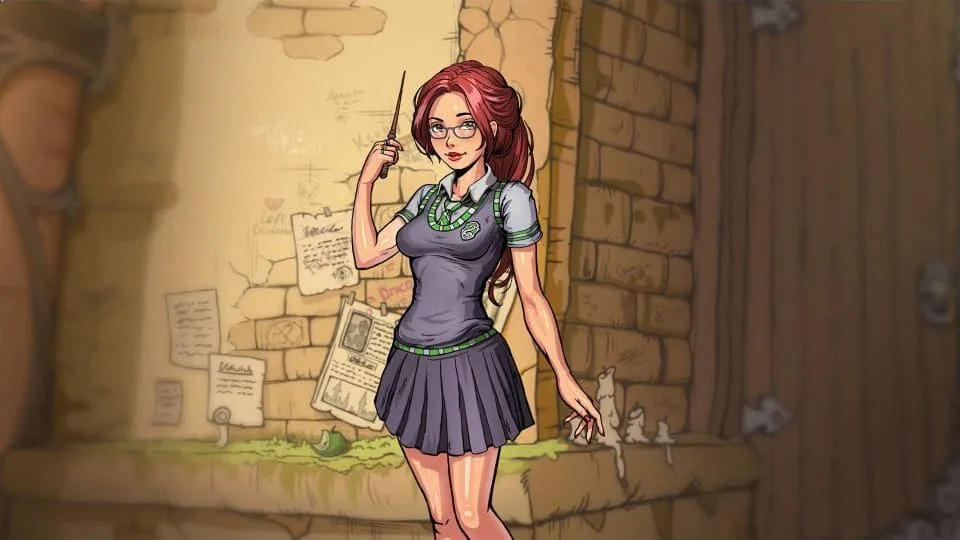
Long Road Home
Play Long Road Home
Long Road Home review
Unraveling the mature themes and gameplay innovations of this controversial title
Long Road Home has emerged as a polarizing entry in adult gaming, blending explicit content with surprising narrative depth. This story-driven experience challenges players to navigate complex relationships in a dystopian setting while managing strategic resource systems. Unlike traditional adult games, it combines mature themes with RPG elements and moral decision-making that impacts character development. Our analysis reveals why this title sparks debates about sexuality in gaming while maintaining a loyal fanbase.
Gameplay Mechanics and Mature Content Integration
Balancing erotic elements with strategic resource management
Let’s get real for a second. You’ve probably played games where adult content feels like a cheap gimmick—like slapping a neon sign on a cardboard box. Long Road Home isn’t that. 🎮🔥 Here, erotic elements aren’t just eye candy; they’re woven into the strategic resource management that drives the game. Picture this: you’re running a struggling roadside bar in a dystopian world, juggling cash flow, staff morale, and the tangled web of relationships with patrons. One wrong move, and your business collapses—or your heart gets broken.
The core gameplay loop is a spicy mix of The Sims and Fifty Shades. You’ll spend mornings restocking whiskey (🍸), afternoons flirting with mysterious travelers, and nights deciding whether to invest in better security… or a silk bedsheet upgrade. The genius? Mature content integration isn’t optional—it’s a survival tool. For example, building intimacy with certain characters unlocks discounts on supplies or insider tips about bandit raids. But overcommit, and you’ll drain your emotional stamina, leaving you vulnerable to manipulation.
Take the card-based negotiation system, which turns seduction into a tactical mini-game. Imagine playing poker, but instead of chips, you’re betting trust points. I once lost a critical trade deal because I misplayed a “Vulnerability” card—turns out, the rugged mercenary I was flirting with hated emotional honesty. 💔🃏 These mechanics force you to think twice about every interaction. Do you charm the bartender for free drinks, or save your charisma for the mob boss who could burn down your bar?
| Gameplay System | Adult Content Role | Strategic Impact |
|---|---|---|
| Resource Management | Unlocks discounts, alliances | Balances cash flow vs. relationships |
| Card Negotiations | Builds intimacy/trust | High risk/reward for story progression |
| Stamina Meter | Limits romantic interactions | Forces prioritization of tasks |
Pro tip: Treat relationships like a limited resource. Burn too many bridges, and you’ll miss out on critical story branches—or end up alone in the apocalypse.
Relationship systems and consequence-driven narratives
If Long Road Home had a tagline, it’d be “Choose poorly, cry later.” 😂😭 The relationship management system here is brutal, beautiful, and unforgiving. Every dialogue choice, gift, or late-night confession ripples through the game’s narrative branching paths. I learned this the hard way when I ghosted a mechanic to pursue a poet—only to have my truck break down in Act 3 with no one to fix it.
Here’s the kicker: there are over 300 possible story outcomes, shaped by:
– Who you romance (or betray)
– How you handle conflicts (fight, flee, or flirt)
– The character customization options you choose early on (e.g., your backstory as a soldier vs. a con artist)
The game tracks hidden loyalty scores for every major character. Ignore the brooding medic’s texts for too long? He might skip town with your best bouncer. 🚑💔 But this isn’t just about drama—it’s about strategy. Allies can tip the scales in boss fights, while enemies sabotage your resources.
During my “pacifist” playthrough, I focused on diplomacy and wound up with seven allies… but zero bullets. When raiders attacked, I had to talk my way out of a shootout using a combo of logic cards and old love letters. 🕊️📜 Meanwhile, my friend went full “chaotic horny,” burned every bridge, and finished the game in 12 hours (vs. my 25-hour marathon).
Customization options for personal storytelling
Let’s talk about character customization options—because nothing says “apocalyptic vibes” like choosing your protagonist’s tattoo placement. 🖋️🔥 Long Road Home lets you tweak everything from hairstyles (post-punk mohawk, anyone?) to moral alignment. But here’s where it shines: your choices matter. Pick “ex-military” as your background, and you’ll intimidate rivals effortlessly. Choose “failed musician,” and you’ll charm folks with guitar solos instead of threats.
The real magic? Narrative branching paths adapt to your look and backstory. During my second playthrough, I gave my character a facial scar and a cynical personality. Suddenly, the bartender shared war stories instead of flirting, and a side quest about PTSD unlocked. It’s like the game sees you—which makes failures hit harder.
Want to min-max your way to an easy win? Good luck. The mature content integration ensures that even “optimal” choices have messy consequences. Romance the rich smuggler for her resources, and she’ll demand you exile your childhood friend. Prioritize practicality over passion, and the ending slideshow will roast your loveless existence. 🌌😅
| Customization Type | Impact on Story | Playstyle Example |
|---|---|---|
| Backstory | Unlocks unique dialogue/quests | Soldier vs. Artist |
| Appearance | Changes NPC reactions | Scars = respect, glamour = distrust |
| Moral Alignment | Alters ending variants | Selfish vs. Sacrificial |
So, is Long Road Home worth the emotional rollercoaster? 🎢 If you’re tired of games that treat adulthood like a PG-13 afterthought, absolutely. Just remember: in this world, every kiss, every lie, and every bullet has a price.
Long Road Home pushes boundaries in adult gaming through its sophisticated blend of narrative ambition and mature content. While not for all players, it demonstrates how erotic elements can enhance character-driven storytelling when handled thoughtfully. For those curious about evolving game narratives, this title demands attention – approach with an open mind and discover why it’s sparking crucial industry conversations.






























